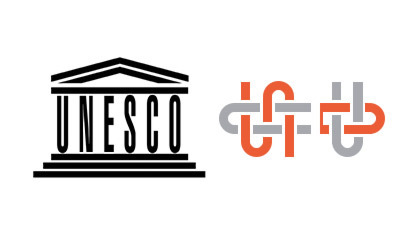
About Us
The Complex Systems Digital Campus (CS-DC) is an international network of individuals and more than 100 universities and institutions working together and sharing resources to promote research and education in complex systems science and in integrative sciences. This large scale collaborative work will embody social intelligence strategies towards new scientific and educational practices, dealing with the difficult scientific, societal and environmental challenges of an increasingly interconnected world.
In 2014 the CS-DC was recognised by UNESCO as a UniTwin linking Europe, Africa, Latin America and the rest of the world.
Launched in 1992, the UNITWIN/UNESCO Chairs Programme promotes international inter-university cooperation and networking to enhance institutional capacities through knowledge sharing and collaborative work. The Programme supports the establishment of UNESCO Chairs and UNITWIN Networks in key priority areas related to UNESCO’s fields of competence – i.e. in education, the natural and social sciences, culture and communication.
Through this network, higher education and research institutions all over the globe pool their resources, both human and material, to address pressing challenges and contribute to the development of their societies. In many instances, the Networks and Chairs serve as think tanks and as bridge builders between academia, civil society, local communities, research and policy-making. They have proven useful in informing policy decisions, establishing new teaching initiatives, generating innovation through research and contributing to the enrichment of existing university programmes while promoting cultural diversity.
In areas suffering from a dearth of expertise, Chairs and Networks have evolved into poles of excellence and innovation at the regional or sub-regional levels. They also contribute to strengthening North-South-South cooperation.
The CS-DC aims to provide high-quality open education in Complex Systems Science for students, researchers, industry, commerce and policy makers worldwide. This science is essential to address the urgent problems of the modern world, including epidemics, financial crashes, population movements, natural disasters, poverty, conflict and the environment. Our courses are created by leading scientists from highly ranked institutions worldwide.
